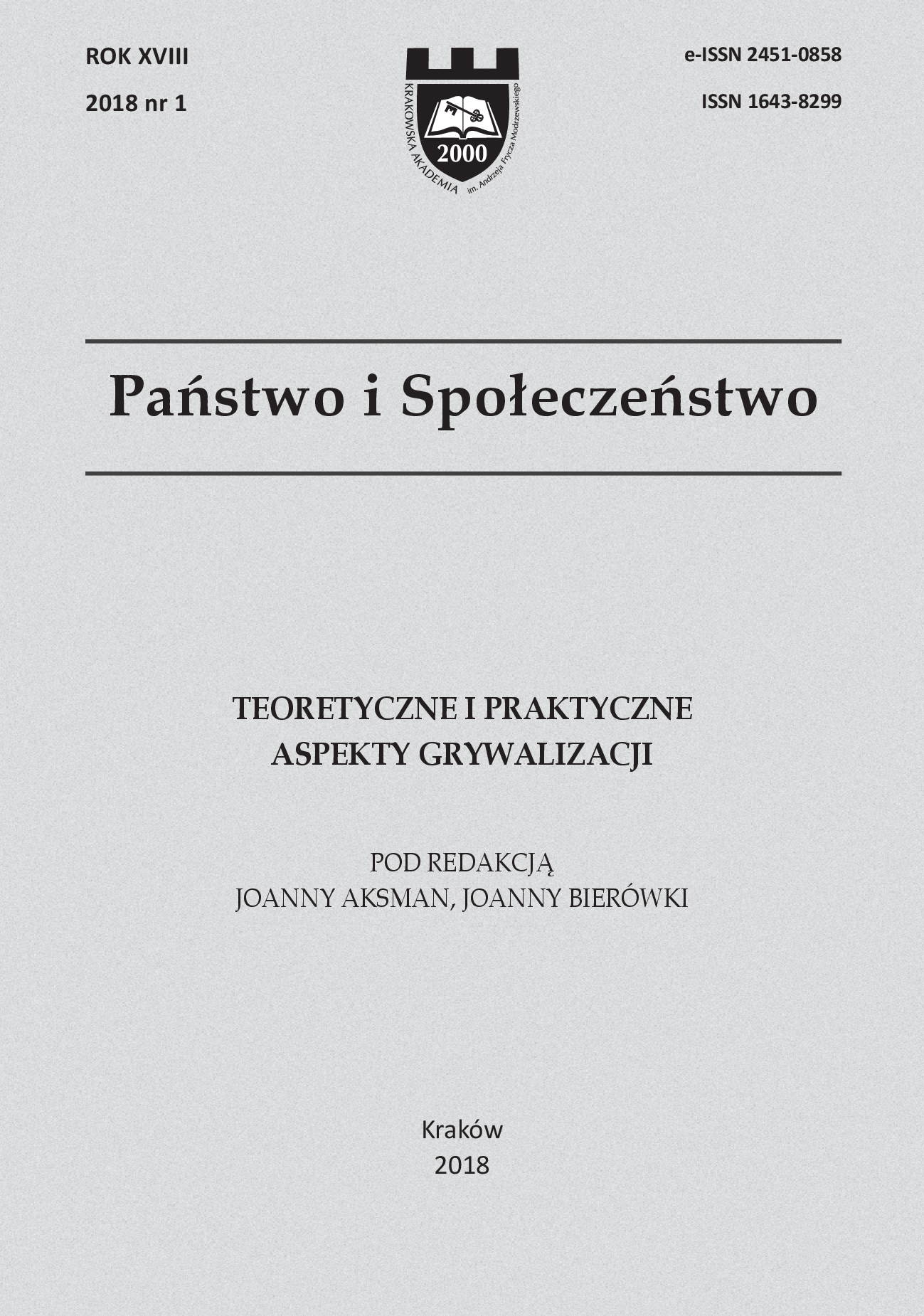O urzeczywistnieniu gry i mistyfikacji rzeczy.
Gamification: to Embody a Game and Mystify a Body.
Author(s): Jarosław RokickiSubject(s): Philosophy, Ethics / Practical Philosophy, Ontology
Published by: Oficyna Wydawnicza AFM Uniwersytetu Andrzeja Frycza Modrzewskiego w Krakowie
Keywords: ;epistemology;culture;play;game;ethics;gamificaton;objectification;mystification;
Summary/Abstract: The emergence and expansion of a gamification concept calls out questions of its meaning and the ontology of phenomena it contains. The article’s point of departure lies in reflection that gamification is simultaneously a kind of entity and a tool of cognition. In this article the author, following Johann Huizinga’s classical approach, a ributes the category of play/game to culture and examines it in terms of cognition. He consequently describes cognitive concepts of realism and nominalism, Kantian turn towards the „critical philosophy”, and Hilary Putnam’s „internal realism”. They are basic criteria that delineate the ontological status of culture and its attributes. According to Roger Caillois, the play/game or ludus differs from non-ludus because of the six „fundamental rules”: a) it is free, not obligatory, b) it is separate from the routine of life and occurs in its own time and space, c) it is uncertain, so that the results of play cannot be pre-determined, d) it is unproductive in that it creates no wealth and ends as it begins, e) it is governed by rules that suspend ordinary laws and behaviour and that must be followed by players, f) it involves make-believe that confirms for players the existence of imagined realities that may be set against „real life”. Disruptions of the „fundamental rules” lead to manipulation and deception, they ruin the play/game, instigate conflicts, destroy trust, and eventually they corrupt social bonds and open gates for social anomy. Gamification is a strategy that uses tools of reification and mystifica on, blends the orders of a conventional world of play/game with reality and destroys their principal rules. The way to prevent the process of destruction may be looked for in the domain of moral or ethical criteria, which can be found beyond the domain of the ludus.
Journal: Państwo i Społeczeństwo
- Issue Year: XVIII/2018
- Issue No: 1
- Page Range: 9-36
- Page Count: 28
- Language: Polish

